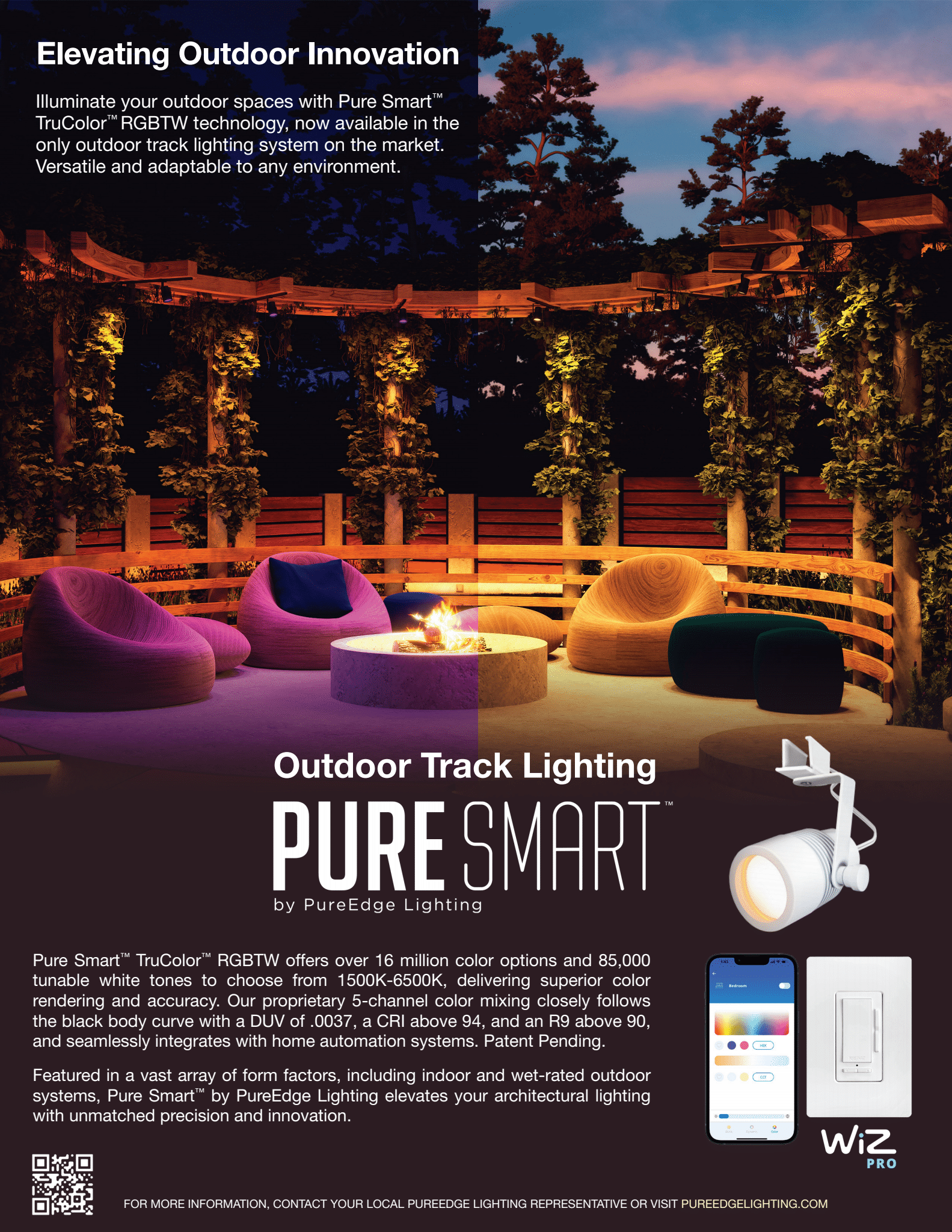
3 minute read
Invisible Power Delivery
Lighting Without Wires with Zytronic's ElectroglaZ™
By Randy Reid
We were intrigued by Zytronic's technology, and how it could provide more options for our clients. Objects on glass shelves are always difficult to light in cases. It was exciting to showcase a demo of Luxam spotlights integrated and powered within Zytronic ElectroglaZ™ at Museum+Heritage show in London.
— Daphnée Hocquard, General Manager USA, LUXAM
Zytronic's roots trace back to the 1940s when the company manufactured glass gas mask lenses and composite glass products. Over the decades, Zytronic evolved into producing ballistic glass for armored vehicles and eventually entered the touchscreen market in the late 1990s. The company was a pioneer in projected capacitive touch sensing, a technology now ubiquitous in devices like the Apple iPhone.
INNOVATIONS IN TOUCHSCREEN TECHNOLOGY
Dr. Andrew Morrison, Chief Technology Officer at Zytronic, highlighted the company’s significant contributions to the touchscreen industry’s evolution. "We pioneered our own technology path and coined the phrase projected capacitive touch sensing," he noted. This innovation paved the way for robust touch sensing applications in ATMs, ticketing, vending, gaming, and more, particularly in 24/7 outdoor and vandal-proof environments.
Zytronic's latest innovation, ElectroglaZ™, combines their historical in-house expertise in glass processing and laminating with modern technology. ElectroglaZ™ allows for the integration and powering of low-voltage devices such as lights, motors, induction chargers, audio speakers, and LCDs within laminated glass structures without visible power cables.
One of the most promising applications of ElectroglaZ™ is in museum lighting. Morrison explained, "We've been trying to drive it into the museum market, which is a small but highly interconnected industry." The technology enables lighting designers to create elegant, cable-free displays. With no cables, the luminaires appear to be floating within the glass structure.
Recognizing the importance of strategic partnerships, Zytronic collaborates with companies like Luxam and Precision Lighting to leverage their established market presence. "We quickly realized we have to partner up with branded names who already have an established presence in that market," Morrison said. These partnerships facilitate the introduction of ElectroglaZ™ into various sectors, including museums, retail, and hospitality.

EXPANDING HORIZONS
While museums are a primary focus, the potential of ElectroglaZ™ extends to commercial and hospitality settings. Morrison envisioned applications such as glass tables with integrated phone chargers and lighting in high-end hotels and restaurants. "The technology creates a slick, aesthetically pleasing solution of a transparent surface that you can put your phone on and it magically charges, but you can also power the light through it as well," he explained.
ElectroglaZ™ operates at up to 50 volts and 4 to 6 amps, making it suitable for a range of low-power applications. Morrison emphasized the scalability of the technology, suggesting potential future developments like curved or shaped glass structures with integrated devices.
Zytronic's go-to-market strategy involves providing complete solutions rather than just components. Morrison recounted how initial customer feedback led them to offer integrated products rather than just the glass structures. This approach addresses the demand for turnkey solutions in the lighting and display markets.

LOOKING FORWARD
As Zytronic continues to explore the capabilities of ElectroglaZ™, the company remains committed to innovation and collaboration. Morrison concluded with a vision of expanding into new markets and applications, driven by the unique possibilities offered by their advanced glass technology.
To learn more, visit Zytronic’s website.











